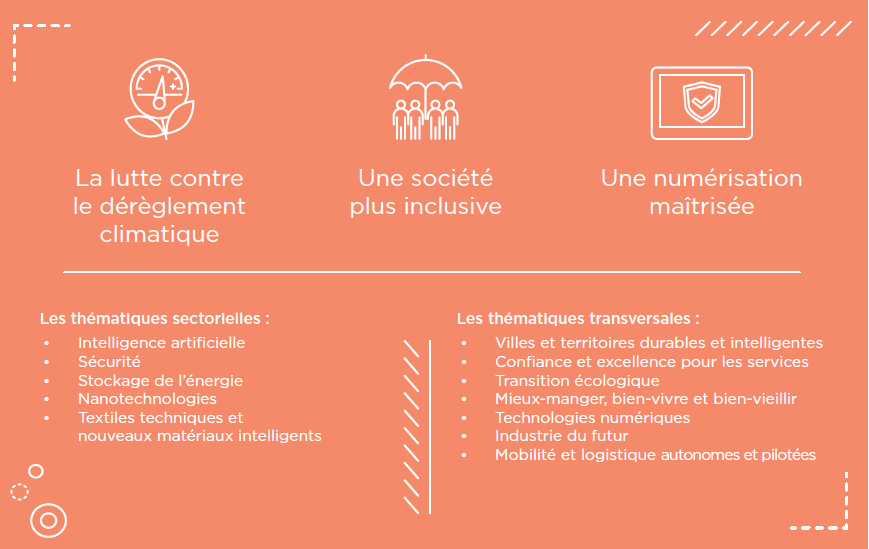As a forum for all players in the French economy, standardization takes the pulse of major technological and societal trends. As such, it is at the forefront of identifying subjects that lend themselves to the development of new voluntary standards. In 2019, AFNOR’s Standardization Coordination and Steering Committee (CCPN) has compiled them into a strategic document, the French Standardization Strategy, which follows on from the French Standardization Strategy 2016-2018 and applies it to the 15 major areas of standardization.
8 cross-cutting themes and 5 sectoral themes

Three contemporary challenges form the basis of this strategy: the fight against climate change, controlled digitization and a more inclusive society. For each of them, AFNOR sets its priorities by defining one of three levels of involvement: leading, influencing or monitoring.
The French standardization strategy that AFNOR is following in 2019 is a continuation of the one that drove the years 2016, 2017 and 2018 around two major challenges: the fight against climate disruption and the digitization of society. Thanks to the mobilization of all stakeholders and the internal teams responsible for bringing them together, AFNOR has succeeded in convincing people that voluntary standardization can benefit the markets concerned. In October 2018, for example, AFNOR published the world’s very first voluntary standard dealing with the circular economy, the experimental standard XP X30-901, which provides guidelines for the management of projects claiming this appellation. ISO then set up a specific technical committee, ISO/TC 323, under the French presidency, to apply it internationally and inspire other standards, possibly sector-specific.
The sustainable city: a success story
Another field that has lent itself to the standardization game as part of France’s 2016-2018 standardization strategy: smart and sustainable cities. The first success was the publication, by the ISO/TC 268 technical committee with a French secretariat, of the flagship standard ISO 37101 – Sustainable development in local communities – Management system for sustainable development – Requirements and guidelines for its use. The second is Franco-Chinese, with the testing of the French standard on sustainable business districts between Versailles-Grand-Paris and Beijing Science Futur Park. On this subject, China and France have set up an international club of cities wishing to exchange best practices in sustainable urban development.
Like these two examples, the French standardization strategy is inspiring new areas of work in all of AFNOR’s fields of activity. Tomorrow’s standards are being prepared today… and certainly not without you! Visit norminfo.afnor. org to join a standards committee and follow the standards life cycle.